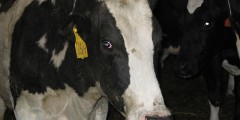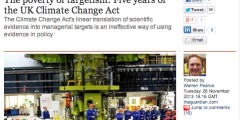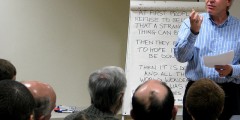If not evidence-based, then what?
March 9, 2018
In my last post on science communication, I quoted from an article by David Dickson in which he said that “evidence-based decision-making is an ideal that we should aspire to at every level of society, from local communities to the top levels of government”. Evidence – a twitter discussion There was a bit of back-lash …
Expertise and the changing nature of universities: Reflections on a recent European Ombudsman ruling
June 15, 2015
A recent ruling by the European Ombudsman highlights the effects of the changing nature of the university on the use of expertise in science governance and policy-making more broadly. The Ombudsman recognises universities are developing closer ties with industry and becoming commercial entities in research production and commercialisation of results. She argues that traditional notions …
A cut too far? The ritual slaughter debate in Britain
February 13, 2015
The World Food Summit, in 1996, agreed a definition of food security that included the requirement that food met the food preferences of communities. Indeed, it is evident that food preferences reflect aspects of culture including religious identity. Where food preferences include the consumption of animals, debates about animal welfare also arise which can come …
Evidence-based policy: data has its limits
July 16, 2014
This post was originally published on the blog of the Alliance for Useful Evidence, an open–access network of more than 1,800 individuals that champions the use of evidence in social policy and practice. “Aaarghhh! Politics and policy-making is so frustrating! We spend so much time conducting careful scientific analysis in all kinds of fields of enquiry. The results are published …
What does climate sensitivity mean? Peace for our time…or the wrong battle?
March 7, 2014
A very quick post on this week’s big news in the climate blogosphere: a new report on climate sensitivity, Oversensitive, written by Nicholas Lewis and Marcel Crok published by the Global Warming Policy Foundation (GWPF). The GWPF’s role is discussed in a new Klimazwiebel post by my colleague, Reiner Grundmann, while Ed Hawkins’s Climate Lab Book …
Evidence and Public Engagement in Immigration Control
February 10, 2014
Immigration control has become a fundamental project in contemporary Britain especially in relation to the incapacity of the welfare state to absorb large numbers of poor immigrants coming from all over the globe. However, as Bridget Anderson has argued in her book ‘Us and Them: the Dangerous Politics of Immigration Controls’, immigration control, as a …
Climate change targetism: scientific numbers, managerial policy
November 27, 2013
It is five years since the Climate Change Act was given Royal Assent. This groundbreaking piece of legislation provided a huge boost to environmental campaigners who had long campaigned for government to make such a move. It also denoted a key stage in David Cameron’s ‘detoxification’ strategy of the Conservative Party while in opposition, as …
Global science, local perspectives – how does climate change fit into policy priorities?
October 17, 2013
I present here a synopsis of a lecture I gave yesterday for year 3 undergraduates on our Climate, Science and Society module at University of Nottingham. The session was two hours long, which is rather a long time to listen to one person. So to ensure an engaged audience, I gave around an hour and …
Just one number: has the IPCC changed its supply of evidence?
September 27, 2013
As I have researched online climate scepticism over the last year, its become clear that climate sensitivity has been one of the biggest topics for discussion. This is perhaps one of the easier parts of climate science to understand. Put simply, sensitivity measures the amount by which the Earth’s temperature increases when atmospheric carbon dioxide …
Call For Papers: Making Expertise Public panel at #SIP13 & #IPA2013
February 12, 2013
UPDATE: deadline extended to March 5th. We warmly invite papers to our Making Science Public panel Making Expertise Public: Dilemmas, Conflicts and Controversies, being held at the Interpretive Policy Analysis conference in Vienna (July 3rd-5th). The panel is co-chaired by Sujatha Raman (Deputy Director of Making Science Public), Warren Pearce and Judith Tsouvalis (Making Science Public Research Fellows). Abstracts are invited …










